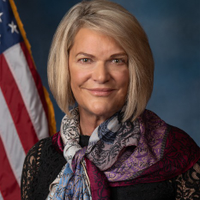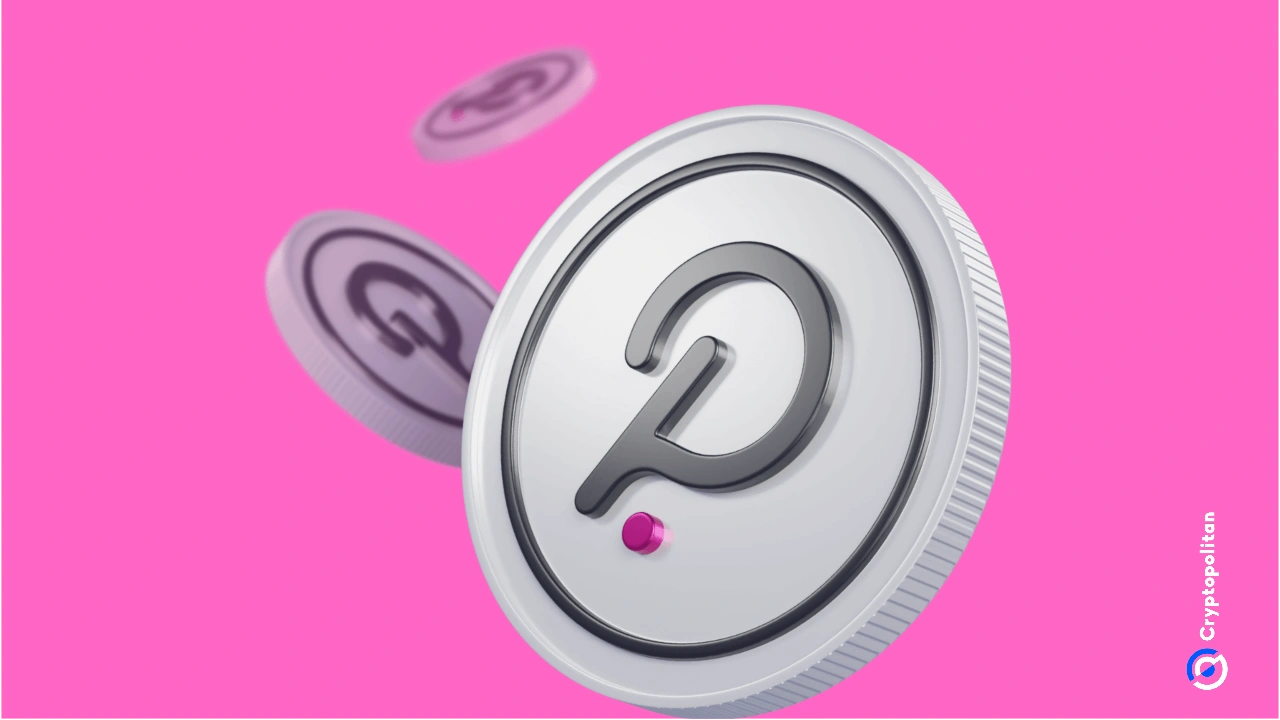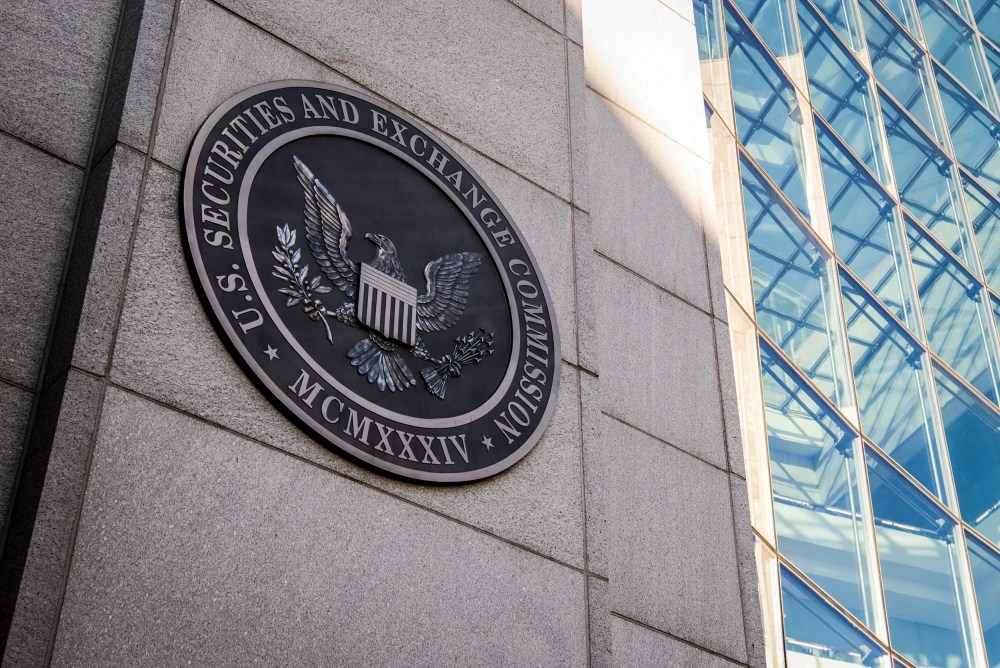The post Will the U.S. Ever Create a Bitcoin Reserve? Fed Official Weighs In appeared first on Coinpedia Fintech News
The idea of the U.S. establishing a Bitcoin reserve has sparked a lot of conversations lately, and now, a Federal Reserve official has weighed in with his perspective.
Austan Goolsbee, president of the Federal Reserve Bank of Chicago, recently shared that while the discussions are interesting, there are serious legal limits on what the Fed can hold on its balance sheet. But is a Bitcoin reserve still possible, or is it just another pipe dream?
Goolsbee’s comments come after Federal Reserve Chair Jerome Powell reaffirmed that the Fed cannot hold Bitcoin due to the Federal Reserve Act. Powell has also stated that the Fed has no plans to seek a change in the law. In 2021, he added that Bitcoin’s volatility makes it an unreliable store of value.
Despite the Fed’s stance on holding Bitcoin, Powell has been more open to other aspects of cryptocurrency. In a recent press conference, he stated that banks can now offer cryptocurrency custody services, following the SEC’s decision to remove the controversial SAB-121 guidance.
The announcement was well received by the crypto community, causing Bitcoin’s price to rise.
Bitcoin as Digital Gold – But No Reserve Yet
Powell’s recent description of Bitcoin as a “digital version of gold” aligns with the views of many Bitcoin supporters. However, the idea of a U.S. Bitcoin reserve now seems less likely, with the chances of it being established by April dropping to just 16%. Still, most expect the reserve to be created later this year.
While a national Bitcoin reserve may be on hold, several states, including Texas, Florida, and Ohio, are looking into creating their own Bitcoin reserves. However, it remains uncertain how many of these efforts will succeed. cynthia lummis

cynthia lummis
Cynthia Lummis is a senator from Wyoming, United States. She has a net worth ranging from $20 million and $75 million. On her son-in-law’s advice, she purchased Bitcoin and became the first U.S senator to possess cryptocurrency. She possesses no less than $230,000 worth of Bitcoin. She adopted office on January 3, 2021, the term terminates on January 3, 2027. She has always been focused on advocating for Wyoming’s future. She struggled her entire career fighting for Wyoming families, communities, businesses, and values. Beginning at the halls of the Wyoming House to the Halls of the U.S. House.
Lummis was born on September 10, 1954, and graduated from the University of Wyoming, earning a bachelor’s degree in animal science, and biology. She also achieved a Juris Doctor from the University of Wyoming College of Law. Her career experience comprises working as general counsel to previous Wyoming Governor Jim Geringer, Wyoming House of Representatives, as a treasure of Wyoming, and in the United States House of Representatives from Wyoming’s at-large congressional district.
In 1990, she also worked as the chair of Mary Mead’s gubernatorial campaign and Ray Hunkins’s gubernatorial campaign, in 2006, also served on Bob Dole’s presidential steering committee in Wyoming. Through her firmly beneficial crypto position, she developed the reception and fair guidelines of computerized resources in the United States. She voluntarily organized a great foundation for herself as a significant Bitcoin financial backer. She is professed to continue encouraging the developing cryptocurrencies industry in the United States and all over the world in 2022. Her urge for transparency on cryptographic forms of money and stable coins in U.S. regulation will maintain on becoming tremendous. She had been always looking for a store of value, and she believes bitcoin specifically is a great store of value and knew that scarcity will protect its value going into the future, unlike the U.S. dollar that they are printing more of every single day.
Investor
a Wyoming senator and long-time advocate for Bitcoin, recently said that establishing a reserve will be a top priority as she heads a new Senate subcommittee on digital assets.
.article-inside-link {
margin-left: 0 !important;
border: 1px solid #0052CC4D;
border-left: 0;
border-right: 0;
padding: 10px 0;
text-align: left;
}
.entry ul.article-inside-link li {
font-size: 14px;
line-height: 21px;
font-weight: 600;
list-style-type: none;
margin-bottom: 0;
display: inline-block;
}
.entry ul.article-inside-link li:last-child {
display: none;
}
But the Debate Continues…
Outside the U.S., there is also resistance to the idea of Bitcoin in national reserves.
European Central Bank President Christine Lagarde recently stated that she is confident Bitcoin will not be included in the European Union’s reserves. She emphasized that central bank reserves must be secure, liquid, and free from criminal activities like money laundering.
Her comments came after the head of the Czech National Bank suggested that Bitcoin could make up 5% of the country’s reserves, reigniting debate over Bitcoin’s role in national finance.
Time To Act Fast, Says Senator Lummis
In response to these ongoing developments, Senator Lummis stressed the importance of the U.S. acting quickly to establish a Bitcoin reserve and maintain a competitive edge. “If you’re not first, you’re last,” Lummis said, emphasizing the need for the U.S. to secure its place in the digital asset world.
While the Trump administration is exploring the idea of a Bitcoin reserve, no official announcements have been made.
.article_register_shortcode {
padding: 18px 24px;
border-radius: 8px;
display: flex;
align-items: center;
margin: 6px 0 22px;
border: 1px solid #0052CC4D;
background: linear-gradient(90deg, rgba(255, 255, 255, 0.1) 0%, rgba(0, 82, 204, 0.1) 100%);
}
.article_register_shortcode .media-body h5 {
color: #000000;
font-weight: 600;
font-size: 20px;
line-height: 22px;
}
.article_register_shortcode .media-body h5 span {
color: #0052CC;
}
.article_register_shortcode .media-body p {
font-weight: 400;
font-size: 14px;
line-height: 22px;
color: #171717B2;
margin-top: 4px;
}
.article_register_shortcode .media-body{
padding-right: 14px;
}
.article_register_shortcode .media-button a {
float: right;
}
.article_register_shortcode .primary-button img{
vertical-align: middle;
}
@media (min-width: 581px) and (max-width: 991px) {
.article_register_shortcode .media-body p {
margin-bottom: 0;
}
}
@media (max-width: 580px) {
.article_register_shortcode {
display: block;
padding: 20px;
}
.article_register_shortcode img {
max-width: 50px;
}
.article_register_shortcode .media-body h5 {
font-size: 16px;
}
.article_register_shortcode .media-body {
margin-left: 0px;
}
.article_register_shortcode .media-body p {
font-size: 13px;
line-height: 20px;
margin-top: 6px;
margin-bottom: 14px;
}
.article_register_shortcode .media-button a {
float: unset;
}
.article_register_shortcode .secondary-button {
margin-bottom: 0;
}
}
Never Miss a Beat in the Crypto World!
Stay ahead with breaking news, expert analysis, and real-time updates on the latest trends in Bitcoin, altcoins, DeFi, NFTs, and more.



















